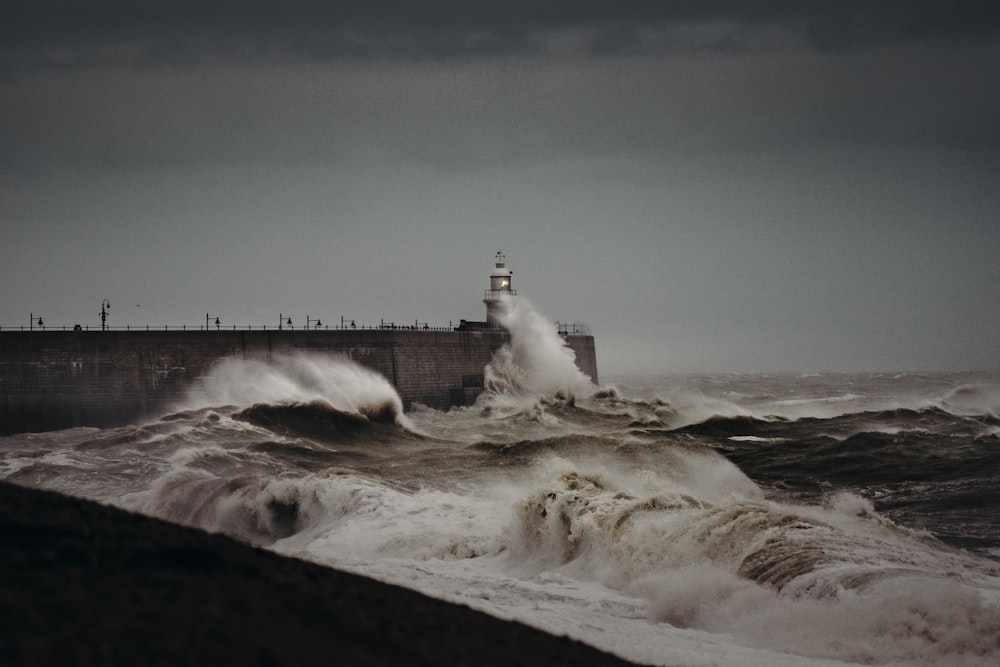3 Min Read
4 Questions to Ask Before Buying Land in New Jersey
Before you can build a home, you've got to buy land the home will be built upon. Choosing the lot for your future house may seem like a relatively small part of the home-building experience, but selecting the right location is equally as important as the timing on when to build. Without the right lot, your forever home might become your 5-year home, or even your 2-year home.
Your happiness in your future custom home depends on more than the design and layout. Its location will affect your commute time, the view you see when you wake up in the morning, the scents carried on the breeze when you step out your front door. Your experience in your house will be shaped by your environment, so choose wisely. Knowing questions to ask when buying land in NJ can help you pick the right lot for your needs. Here's what you need to know.
#1 Where will utilities come from?
Undeveloped vacant land, without any sort of cultivation or improvement, is called raw land. Raw land lacks roads, fences, pathways, utility service and sewer. Though beautiful, raw land can be difficult to purchase and build upon. Mortgage lenders are reluctant to issue raw land loans because of the relatively high risk of default.
Improved land has sewer, electrical and other services that homes need to function properly. Building a home on developed land is easier because the infrastructure is in place for the home to be built. Building on improved land is also less expensive because the homeowner isn't responsible for the installation of roads and other important features that people need.
#2 What is the location like?
This is a question that home buyers usually answer by doing their own research into the property they're thinking about buying. There are many questions to ask when buying land to build a house.
If you're wondering what to consider when buying land, this is what we suggest:
What's nearby?
Are there services in the area, like businesses and schools? How long will your commute be? How close are the nearest neighbors?
Is there a view?
What will you see every day when you wake up? How might you change the view when you move into the house - or do you want to change it at all?
Are there water features?
Water features can be an attractive part of your property, if that's important to you. Some homeowners don't want water features because they worry about flooding, or keeping their children and pets safe.
What's the environment like?
Can you hear noises when you're there? What kind of noises do you hear? Are there smells? What landscape features can be found nearby? Is the soil quality good? Is the air quality good? Getting a land inspection by an experienced professional can help you answer questions about the safety of the soil and air on the piece of land you're thinking about purchasing.
Is the location changing? What will it be like in 10, 20 or 30 years?
Is the piece of land you're thinking about purchasing in an area that is changing rapidly, or is it perhaps close to a community that is changing rapidly? Knowing what you expect the land to look like in a few decades can help you choose a home that you'll be happy with for the long-term.
#3 What are the zoning requirements?
Zoning requirements control what land can be used for and what kind of buildings can be constructed on the land. Zoning requirements separate commercial use land from farm land from residential land. Knowing the zoning requirements can prevent you from wasting time with a lot that is not appropriate for your home building project. Find out from your local zoning board the requirements for the property you're thinking about buying.
Sometimes home buyers are able to purchase land and apply for a variance that allows them to use the land in a way that is not completely in line with the zoning requirement. If you've fallen in love with a piece of land that is zoned for non-residential use, find out from your local zoning board whether that property would qualify for a variance.
#4 Is there an easement?
An easement is a legal right for someone else to use a property for a specific purpose. An example of a common easement is a utility easement that allows the water company onto your property to read the water meter, make repairs to the main water line and so on.
Easements can get more complicated. Imagine a neighbor mistakenly built a shed over the property line, so their shed was partially on their neighbor's property. One way to solve this problem would be to get an easement to access the shed. If this happened, that easement might follow the property even after it sells.
#5 Is the land prone to natural hazards?
The worst natural hazards in New Jersey usually consist of storms and hurricanes. Homes by the coast and in low-lying areas are especially vulnerable to floods when big storms arise. Just because a plot of land is vulnerable to certain natural hazards doesn't mean you can't build a home there.
Careful planning and investment in home insurance can help protect you. If you're concerned that the plot of land you'd like to buy is prone to flooding, check the address on the FEMA flood map to investigate the level of risk, and purchase flood insurance if it's necessary. Work with your design-build contractor to design a home capable of withstanding the level of flood you expect for the area.
Ready to Buy Land and Build a House? Get Started Today
Build the house you've always wanted. Contact GTG Builders LLC to construct your custom home in New Jersey, or download our free custom home guide to learn more about the home building process.





/Spacious%20kitchen%20layout%20with%20large%20island%20and%20ample%20natural%20light%20in%20a%20net-zero%20custom%20home%20in%20Bloomsbury%2c%20NJ%20by%20GTG%20Builders.jpg?width=352&name=Spacious%20kitchen%20layout%20with%20large%20island%20and%20ample%20natural%20light%20in%20a%20net-zero%20custom%20home%20in%20Bloomsbury%2c%20NJ%20by%20GTG%20Builders.jpg)
.jpg?width=352&name=NP1_0394%20(1).jpg)